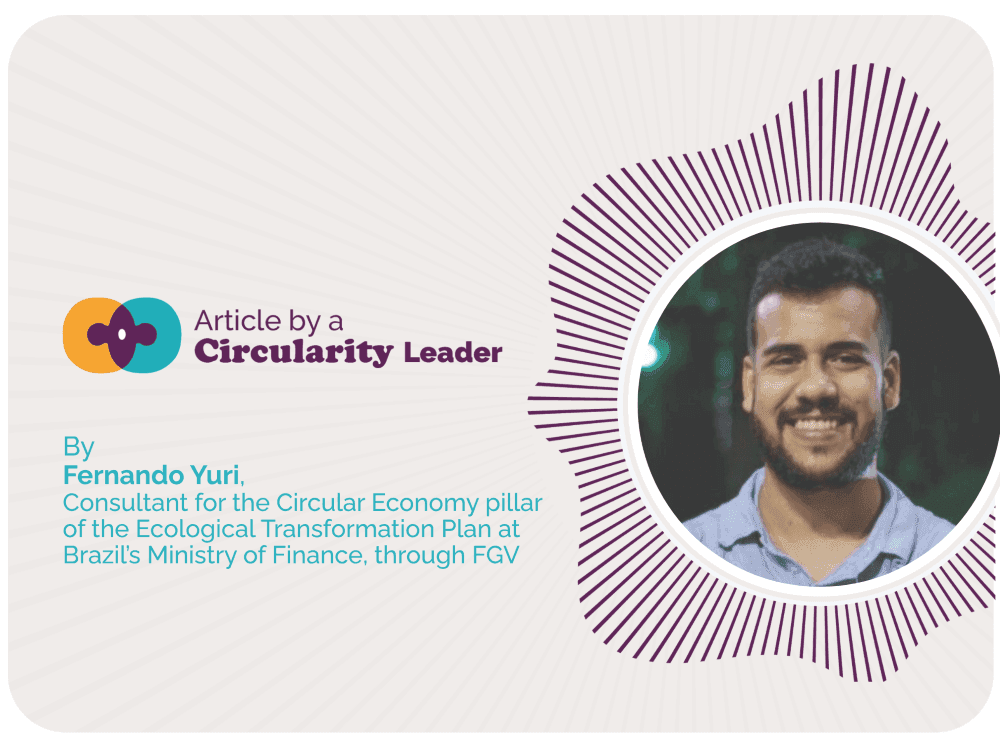
02/02/2024
Summer and Circular Economy: challenges of coastal cities in waste management
By Arlene Carvalho, from the Circular Movement
With its 7,637 kilometers of coastline, Brazil annually attracts a growing population seeking its over two thousand beaches, driven by the tropical climate and the promise of escaping urban chaos. However, this coastal charm also brings socio-environmental challenges as the temporary increase in population tends to result in a rise in waste volume. That's where some Brazilian coastal cities stand out, not only for the beauty of their beaches but also for their ability to tackle this challenge, promoting the Circular Economy and ensuring that this temporary population growth does not negatively impact nature and people.
Effective waste management is key to reducing and ideally eliminating our environmental impact. The United Nations (UN) warns that every year, 2 billion tons of solid waste are generated and dumped into the oceans. However, a staggering 33% of this volume does not receive proper treatment, equivalent to 660 million tons, akin to a garbage truck being dumped into the ocean every minute.
Despite these statistics, there are cities already effectively addressing waste management, serving as references for others – after all, summer may be seasonal, but waste management shouldn't be. Thus, a city excelling in summer should demonstrate continuous actions throughout the year.
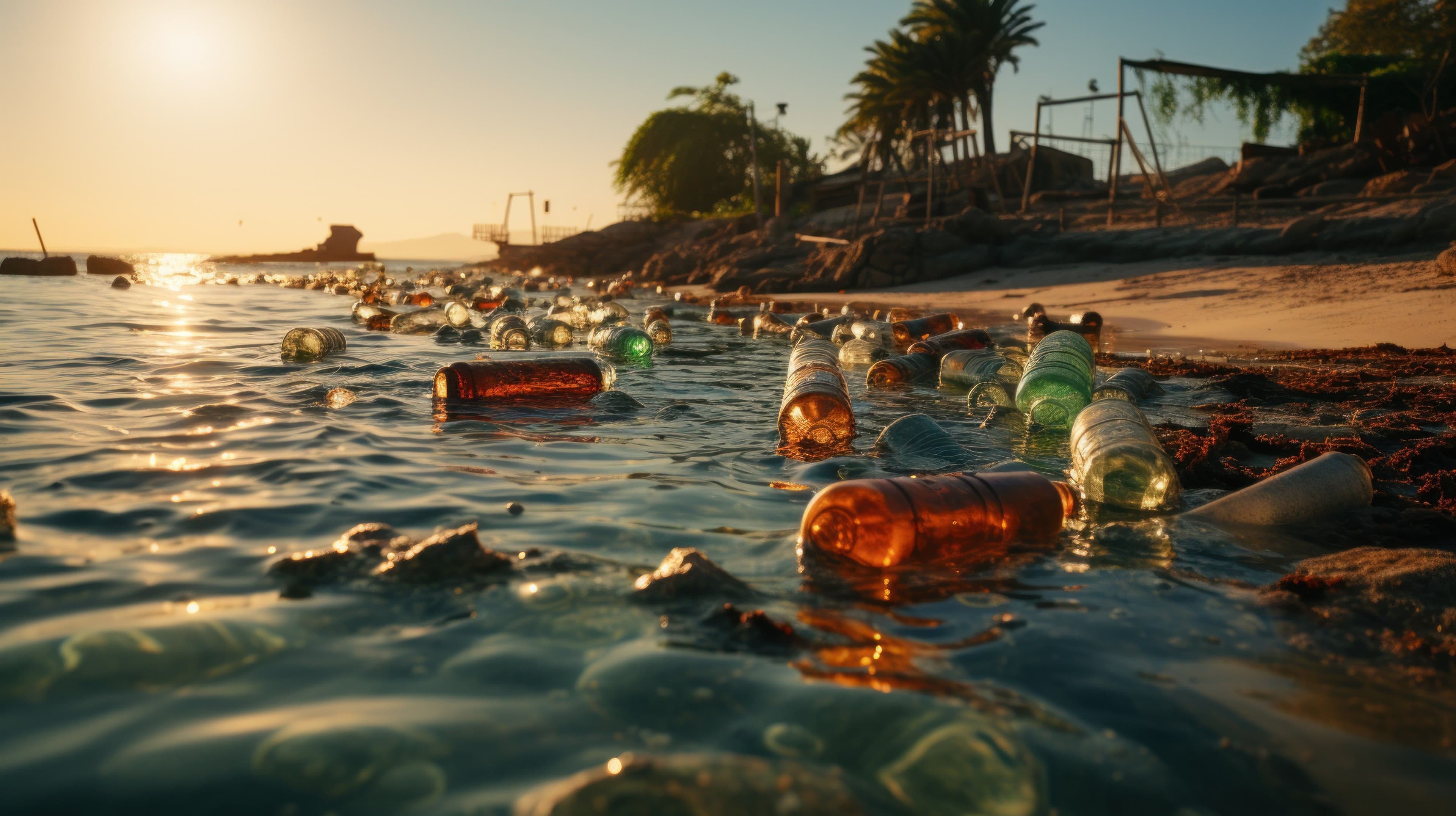
According to the United Nations, 2 billion tons of solid waste are generated and dumped into the oceans. Image: Freepik.
According to Edson Grandisoli, pedagogical coordinator of the Circular Movement, waste management in coastal cities during the high season is indeed a significant challenge. "Management solutions necessarily involve creating a competent collection and disposal structure, which may involve different partnerships between the public and private sectors. It's essential to note that tourists and residents also bear great responsibility. No one enjoys swimming or walking on a beach full of cigarette butts, ice cream sticks, and single-use cups," he states.
The 2022 Urban Cleaning Sustainability Index (Islu) report, formulated by the National Union of Urban Cleaning Companies (Selur) and PWC Brazil (an auditing and consulting company), lists cities in Brazil with over 250,000 inhabitants that have the best selective collection service. Among the top 10, seven are coastal cities: Niterói and Rio de Janeiro in Rio de Janeiro; Vila Velha in Espírito Santo; São Vicente, Praia Grande, and Santos in São Paulo; and Recife in Pernambuco.
Each inhabitant of these cities produces about 388 kilograms per year. Every year, they become a paradise for over 50% of Brazilians who prefer enjoying the beaches over other destinations.
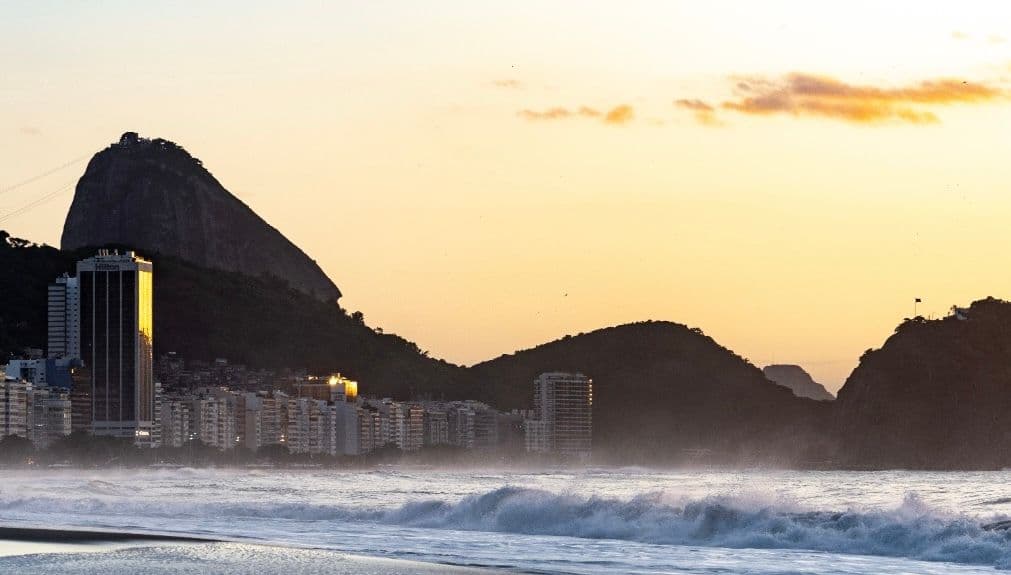
Rio de Janeiro is one of the coastal cities where selective waste collection stands out, according to Islu 2022. Image: Freepik.
Coastal cities and their waste management initiatives
Based on the 2022 Islu data, we identified the seven coastal cities that stand out the most for their waste management. Now, let's explore the unique features of each of these cities. What are their Circular Economy initiatives, selective collection, environmental conservation, and, of course, actions during the summer? Let's find out!
Niterói, RJ
In Niterói, Rio de Janeiro, waste management goes beyond recycling, standing out for Circular Economy initiatives such as citywide selective collection and the creation of a Sustainable Delivery Point in the Buraco do Boi Community, promoting the exchange of recyclable materials for a social currency for access to cultural and educational activities. In the context of selective collection, the city is recognized by Islu 2022 as one of the coastal cities with the best service, implementing diverse approaches such as door-to-door collection, Voluntary Delivery Points, programs in low-income communities, schools, condominiums, and unique selective collection. Promoting the participation of the local community is a priority in Niterói, with CLIN maintaining a trained team for continuous environmental education and awareness actions. These initiatives, including exhibitions and lectures on sustainability and the environment, aim to encourage residents to actively participate in selective collection, contributing to effective and sustainable waste management in the city.
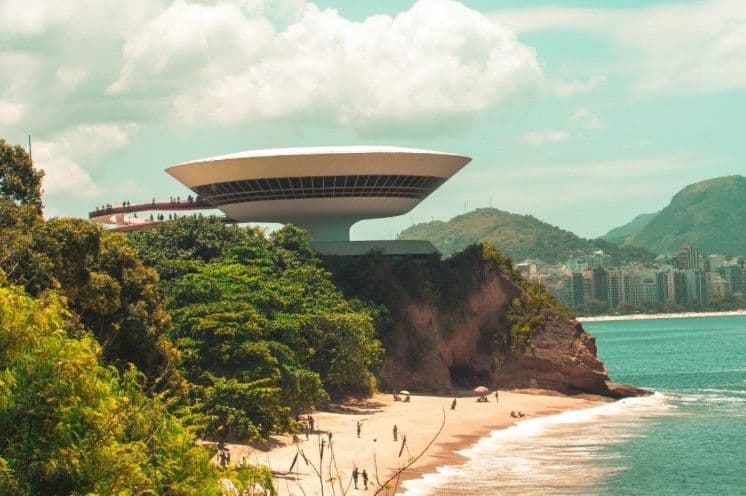
According to Islu, Niterói, in Rio de Janeiro, has the best selective waste collection in Brazil. Image: Freepik.
Rio de Janeiro, RJ
In Rio de Janeiro, Comlurb intensifies beach cleaning in the summer with the Praia Limpa (Clean Beach) project, using more teams and tractors. Strategic containers, awareness, and distribution of recyclable bags are provided. The city maintains cleaning routines throughout the year and reinforces them for nighttime events. In Circular Economy, Comlurb values the 7 Rs, transforming waste into useful products. Noteworthy is the Biomethanization Unit, generating biogas and organic compost. Programs like the Blue Seal encourage condominiums to practice selective collection. Rio is recognized by Islu 2022 for selective collection on beaches, with public-private actions and partnerships. Comlurb conducts lectures, distributes informative material, and registers condominiums in the Blue Seal, increasing adherence to selective collection.
Vila Velha, ES
In Vila Velha, Espírito Santo, waste management during the summer is addressed with specific strategies such as environmental education campaigns, installation of Voluntary Delivery Points, and reinforcement of the gari (street sweeper) contingent for coastal cleaning. In addition to recycling, the city implements Circular Economy initiatives, including partnerships for collecting tires and electronic waste. Programs like Cata-Móveis (Furniture Collection) and partnerships with waste picker associations contribute to selective collection, while investments in environmental education cover commercial sectors and condominiums. The city, highlighted by Islu 2022 as one of the coastal cities with the best selective collection, is revamping this process and finalizing a solid waste plan. Emphasizing environmental education remains crucial, monitoring eco-points, and involving the community in awareness of proper disposal. To promote local participation in selective collection, Vila Velha uses outreach campaigns, social media, and awareness activities, maintaining proximity with condominium managers and administrators. These practices are adapted to seasonal population increases, with continuous environmental education efforts and participation in events throughout the year to ensure the effectiveness and sustainability of the waste management system in all seasons.
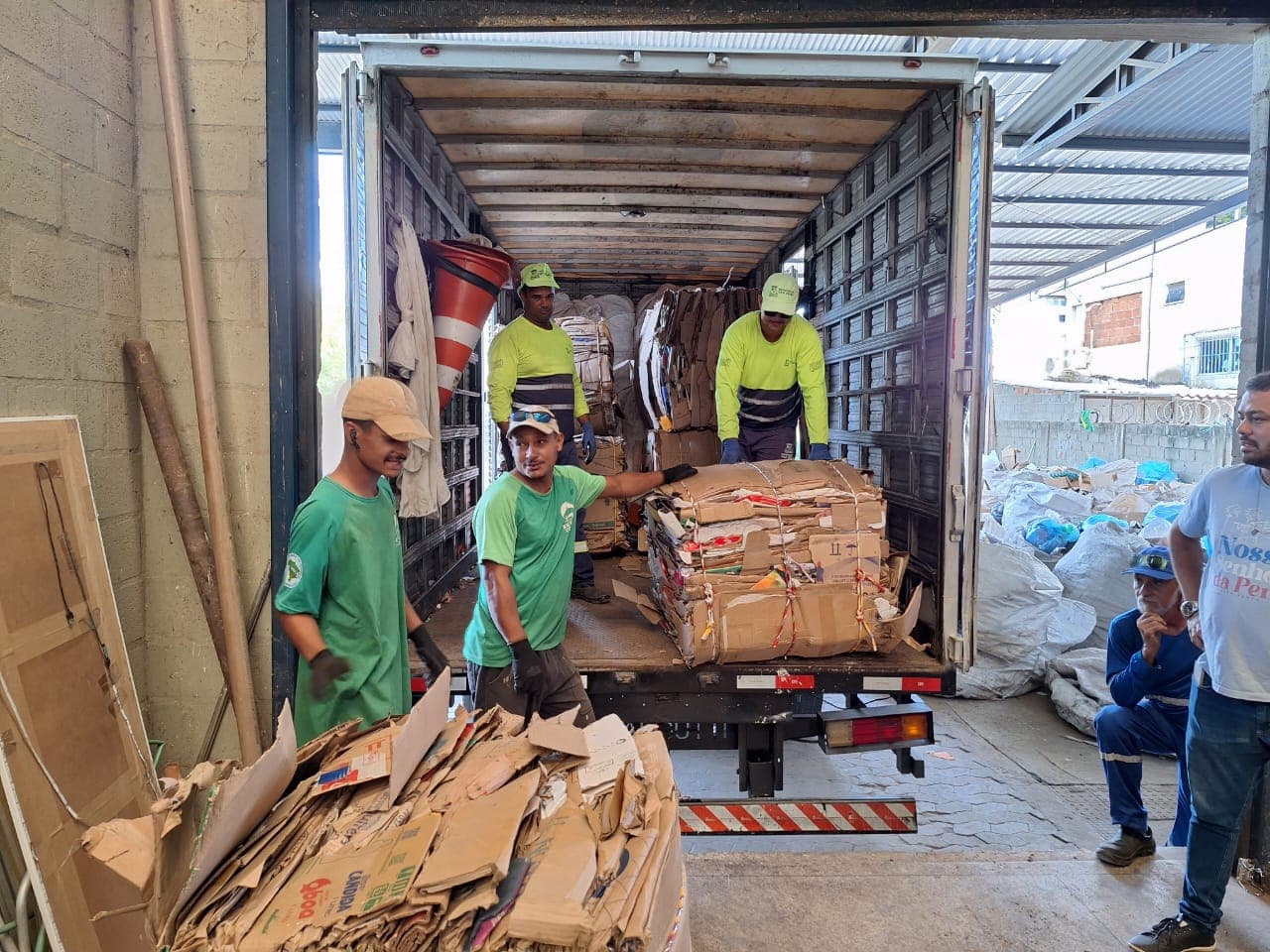
There are several selective waste collection trucks in Vila Velha, Espírito Santo. Image: Disclosure.
São Vicente, SP
The Municipality of São Vicente, through the Environmental Secretariat (Semam), implements effective strategies to cope with the temporary population increase in summer, involving overtime work by the Public Services Secretariat (Sesp) for urban cleaning services and the development of a Waste Contingency Plan. Concerning Circular Economy, the city adopts various initiatives such as differentiated waste management, reverse logistics oversight, combating marine litter, and educational programs in schools, including Municipal Eco-Points and the Cata Treco program for bulky waste. In selective collection, São Vicente establishes partnerships with waste picker cooperatives, promotes awareness actions, cleaning campaigns, and oversight, intensifying communication with tourists. The city ensures the continuity of efficient waste management practices throughout the year, involving constant awareness actions, cleanup campaigns, intensified oversight, and educational programs, aiming for sustainability and effectiveness of the system in all seasons, including projects like Salvamar and events in the environmental month.
Praia Grande, SP
In Praia Grande/SP, waste management is intensified during the summer with extended collection hours, strategic teams, and action on beaches, boardwalks, and streets. In addition to recycling, the city adopts Circular Economy initiatives, such as proper disposal of Construction and Demolition Waste (RCC), composting projects, and cooperatives. The city stands out in Islu 2022 with 12 selective collection trucks, eco-points, and collaborations with secretariats. Promoting community participation in selective collection occurs through outreach, social benefits, and educational programs. To ensure efficient practices throughout the year, there are awareness actions, extended collection hours, and oversight and monitoring measures.
Santos, SP
Santos, on the São Paulo coast, faces temporary population increase during the summer with strategic actions in waste management, seeking new cooperatives and waste picker associations. Additionally, the city plans to launch a bid to implement the Circular Economy concept in the public sector. The Creative Eco-factory, inaugurated in 2022, plays a key role, using public inputs to create pieces, promoting material reuse. Santos integrates the Sustainable Development Goals (SDGs) in its administrative actions, especially in the Climate Action Plan (CAP). Santos' recognition in selective collection services is attributed to Prodesan, conducting door-to-door collection since 1991. The city has over 100 reverse logistics disposal points and carries out environmental education by SEMAM, including teams in public parks. SEMAM promotes community participation in selective collection through educational materials and annually registers waste pickers. Santos adopts integrated actions throughout the year to deal with seasonality, avoiding specific procedures for the summer population increase.
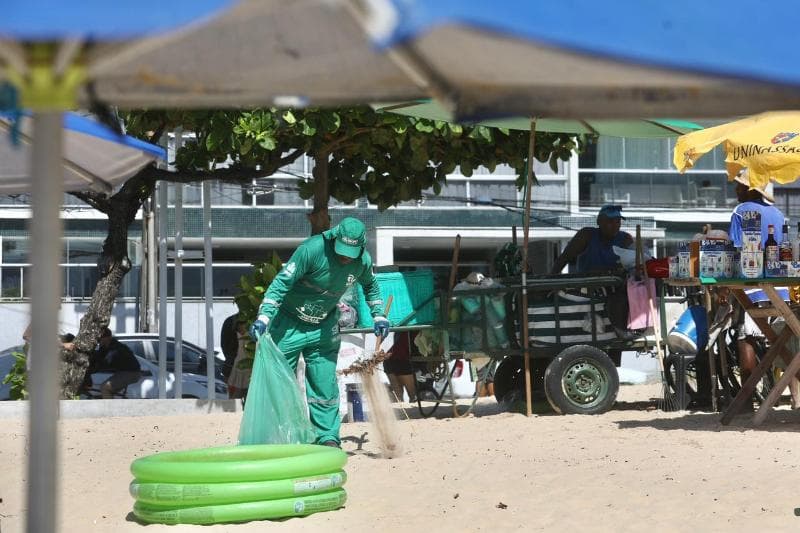
In Recife, cleaning efforts are intensified during the summer. Image: Recife City Hall/Disclosure.
Recife, PE
Recife, the capital of Pernambuco, copes with the temporary population increase during the summer with strategic measures implemented by the Urban Maintenance and Cleaning Autarchy (Emlurb). In addition to regular operations throughout the year, Emlurb intensifies its actions during the summer with specific cleanings on the beach, involving a workforce adjusted to handle the increased waste volume. Activities include sweeping, manual and mechanized boardwalk cleaning, demonstrating a continuous commitment to efficient waste management in all seasons. Recife also excels in Circular Economy practices, going beyond recycling. The Socio-environmental Unit (UNSA) of Emlurb plays a crucial role, working in communities and popular festive events to raise awareness about the importance of reducing, reusing, and recycling recyclable materials. The city promotes active community participation through educational programs, public-private partnerships, and recycling centers at major events, demonstrating a comprehensive commitment to the principles of the 7 Rs of the Circular Economy.
Liked the initiatives? How is waste management in your city? Do you have selective collection? Share with us!
About the Circular Movement
Created in 2020, the Circular Movement is a collaborative ecosystem dedicated to encouraging the transition from a linear to a circular economy. The idea that every resource can be reused and transformed is the motto of the Circular Economy, the movement's core concept. The Circular Movement is an open initiative that promotes collaborative spaces with the goal of informing people and institutions that a future without waste is possible through education and culture, the adoption of new behaviors, inclusion, and the development of new processes, products, and attitudes.
And you? Want to learn more about the Circular Economy?
If you are interested in learning more about this topic, access the Circular Academy, the first free Latin American course on the Circular Economy aimed at the general public. Together, through partnership and collaboration, we can make a difference in building a more circular planet.
